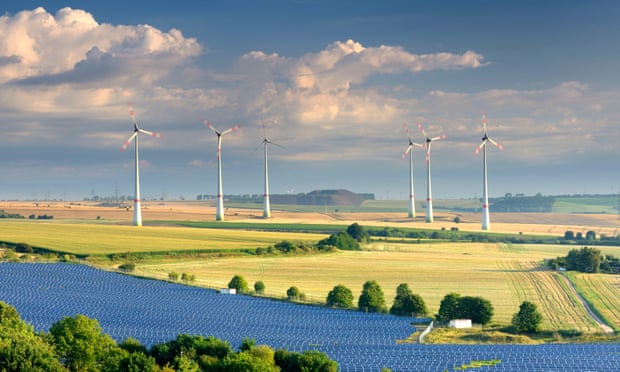
The coronavirus health emergency may prompt a slump in global carbon emissions this year however the outbreak represents a risk to long term climate activity by undermining investment in clean energy, as indicated by the global energy watchdog.
The International Energy Agency (IEA) expects the economic fallout of Covid-19 to clear out the world’s oil demand development for the year ahead, which should cap the fossil fuel emissions that add to the climate emergency.
Be that as it may, Fatih Birol, IEA’s executive director, has cautioned the flare-up could spell a slowdown in the world’s clean energy change except if governments use green investments to help support economic development through the global slowdown.
“There is nothing to celebrate in a likely decline in emissions driven by economic crisis because in the absence of the right policies and structural measures this decline will not be sustainable,” he said.
The virus has fed fears of a global economic recession and assisted with touching off one of the sharpest oil price collapses in the last 30 years, cleaning millions of dollars from the world’s biggest energy organizations.
The economic virus is probably going to slow down numerous infrastructure projects, including the multibillion-dollar investments in clean energy expected to turn away a climate catastrophe before the decade’s over.
The year ahead could mark the first time the world’s solar power development falls since the 1980s, as indicated by a report from Bloomberg New Energy Finance. The examiners on Thursday slashed estimates for new solar power projects by 8%. It anticipated that sales of electric vehicles should slow down as well.
“We should not allow today’s crisis to compromise the clean energy transition,” Birol said. He said global governments should use the economic stimulus packages which are being intended to assist nations with enduring the downturn to invest in clean energy technologies.
He added: “We have an important window of opportunity. Major economies around the world are preparing stimulus packages. A well-designed stimulus package could offer economic benefits and facilitate the turnover of energy capital which has huge benefits for the clean energy transition.”
The IEA’s investigation has indicated 70% of the world’s clean energy investments are government-driven, either through direct government finance or in light of policies, for example, subsidies or taxes. The watchdog has likewise discovered government fossil fuel subsidies total $400bn (£300bn) every year.
Birol asked global governments to invest in energy productivity measures, which probably won’t offer great short-term returns while energy costs are low however would demonstrate a lucrative investment in the longer-term.
The IEA head additionally encouraged policymakers to use the downturn in global oil costs to eliminate or scrap fossil fuel subsidies, which could be used to help healthcare spending.
“These challenging market conditions will be a clear test for government commitments,” he said. “But the good news is that compared to economic stimulus packages of the past we have much cheaper renewable technologies, have made major progress in electric vehicles, and there is a supportive financial community for the clean energy transition.
“If the right policies are put in place there are opportunities to make the best of this situation,” he added.
Disclaimer: The views, suggestions, and opinions expressed here are the sole responsibility of the experts. No Opinion Bulletin journalist was involved in the writing and production of this article.



